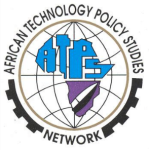Bridging Climate Information Gaps to Strengthen Capacities for Climate Informed Decision-making
Project Duration: 2017-2020
Grantor: ClimDev Special Fund (African Development Bank)
Contacts: Dr. Nicholas Ozor, Executive Director, ATPS
Email: executivedirector@atpsnet.org
Project Director: Dr. Nicholas Ozor
Project Manager: Ernest Acheampong
Project Value: Euros 450,000
Project Description/ Background
The project responds to the call to strengthen the capacities in Africa countries to collect, synthesize and use climate information and services to inform decision-making on adaptation and development planning. It is being implemented by the African Technology Policy Studies Network (ATPS) in partnership with the Stockholm Environment Institute (SEI) Africa Centre, IGAD Climate Prediction and Applications Centre (ICPAC), Observatoire du Sahara et du Sahel (OSS), AGRHYMET Regional Centre (ARC), and the Regional Centre for Mapping Resource for Development (RCMRD). The project focuses on five selected countries (Cameroon, Kenya, Malawi, Nigeria, and Tunisia), which are a representative of the five major geographical regions in Africa.
Key Objectives and Activities
- Identify and analyse climate information needs, provide support for climate information production, synthesis, and use;
- Build the capacities and knowledge of stakeholders (government agencies, research institutions, extension agents and contact farmers) to collect and utilize high quality, demand-driven climate information for adaptation planning and decision-making; and
- Facilitate the mainstreaming of climate change issues in regional policy dialogue aimed at raising awareness on climate change issues to strengthen understanding, use and mastery of climate information
- Climate information synthesis in selected countries;
- Capacity Enhancement and Climate Information Dissemination;
- Project management and administration.
Expected Outputs and Outcomes
- Technical report on the state of climate information needs and services for climate change mitigation and adaptation in Cameroon, Kenya, Malawi, Nigeria, and Tunisia
- Web-based Interactive Collaborative Environment (ICE) for climate information knowledge sharing and dissemination
- Training modules for policymakers and scientists
- Policy briefs and proceedings report of a 3-day regional climate change dialogue and training workshop for policymakers and scientists
- Training Manual for extension agents and contact farmers on the use of LandInfo mobile app
- ICE for climate information knowledge exchange and sharing
- A robust climate adaptation toolkit
- Reports from the Project launch and steering committee meetings
- Establishment of the Project implementation team with clear responsibilities
- Framework for Project implementation, procurement and disbursement
The expected outcomes from the project include:
- Improved national and regional level data collection systems and synthesis for better deployment in decision making and practice;
- Improved capacity of policymakers, scientists, extension agents and farmers to use climate information and technology tools for adaptation planning and decision making;
Project Outputs
VIDEOS
REPORTS
- ATPS’ LandInfo Promotional Flier
- ATPS_Proceedings-Report_Project_Launch_Sept-2017
- ATPS Event Summary in Enuggu State, Nigeria
- Profiling of the LandInfo by the United Nations Economic Commission for Africa (UNECA)
- Proceedings of the Regional Climate Change Dialogue and Training Workshop
- State of Climate Information and Needs_Assessment Report-converted
- SEI_ATPS_Migori-County_Kenya-Case-Study-Workshop-Report
- SEI_ATPS_Enugu-State_Nigeria-Case-Study-Workshop-Report
- LandPKS-Training-Report_Lilongwe_Malawi-Sept-2018
- LandPKS-Training-Report_Enugu_Nigeria-April-2018
- LandPKS-Training-Report_Nakuru_Kenya-Nov-2017
- LandPKS Training Report Cameroon
- LandPKS Training Report Tunisia
- LandPKS Training Manual_English
- Robust Climate Change Adaptation Toolkit for Africa

